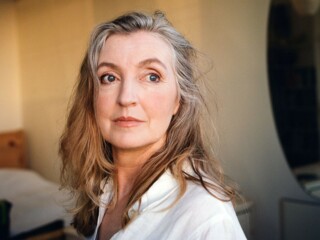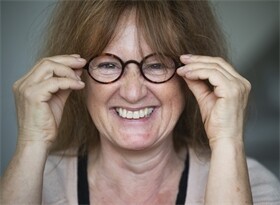'Dense With Ideas': Terry Castle's Picks for International Women's Day
Posted by Terry Castle

My titles are not in any ranked order and I could devise many more such lists. Nonetheless, to get the ball rolling…
Brigid Brophy – Mozart the Dramatist. Don’t Never Forget: she was the perfect listener and often the perfect writer.
Virginia Woolf, Letters. I love the novels, but each one, it has to be said, has some enabling but catastrophic flaw. The very thing that makes the book happen in the first place – Woolf’s inspired decision, for example, to structure Mrs Dalloway around the stories of two people who never meet – is exactly what makes it a fiasco. Haunting, yet emotionally incoherent. But I could read her letters (and diaries and essays) forever.
Elizabeth Inchbald, A Simple Story. A strange and perverse 18th-century novel, which when I first read it at 25 seemed to offer a psychic template for my life up to that point.
Jeannette Foster, Sex Variant Women In Literature. An unsung bibliographic masterpiece, pre-gay-liberation, dealing with lesbianism in literature. Self-published by the gallant Miss Foster while she worked as a librarian at the Kinsey institute in the mid-1950s. The first commercial publication was by the feminist press Naiad in the 1970s, but it seems never to stay in print for more than a few nanoseconds. Indispensable for anyone interested in the subject but also the superb – and delightful – expression of a cultivated personality.
Djuna Barnes, Nightwood. Baroque lesbian cult classic by the gorgon Barnes. No doubt the product of savage PMS, but Eliot endorsed it nonetheless. Alas – and embarrassingly for me now – it cannot go unmentioned.
Susan Sontag, On Photography. My favourite of her books – dense with ideas and dissatisfactions.
Elizabeth Bishop. The poems, of course, but also One Art: Letters of Elizabeth Bishop (ed. Robert Giroux). More hilarious than sad, despite the doleful, ever-multiplying disasters of her personal life.
Elizabeth Bowen, The Death of the Heart. (I would also like to smuggle The Hotel and The Little Girls in here.) Bowen should be an object of literary worship, yet for some odd reason isn’t. Colossally neglected.
H.D. (Hilda Doolittle), Tribute To Freud. Better than the tedious incomprehensible books of poetry: a dreamy yet also curiously salient account of her analysis with Freud in the 1930s. Even better still (only it’s not a book): H.D.’s riveting performance (together with Gavin Arthur, Paul Robeson, and her lover Bryher) in the avant-garde silent film Borderland (1930). Though untrained, she was stunning – really, uncanny – in front of a camera.
Mary Renault, The Friendly Young Ladies (also published under the title The Middle Mist). Renault’s novels of ancient Greece are well-known, of course; less-known are the novels with contemporary English (often hospital) settings. The Friendly Young Ladies is another longtime cult book for laser-beams – despite the ludicrous tacked-on ending, a concession to Renault’s then-homophobic publishers. But it’s also a magical, summer-drenched, yet emotionally sophisticated living-on-a-houseboat-on-the-Thames-in-the-1930s book. P.S.: though somewhat heavy in the poetic-symbolism department, The Charioteer – a gay male romance set in a World War II British hospital after the Dunkirk evacuation – is likewise pretty awesome.
Janet Flanner, Paris Was Yesterday and Paris Journals 1944–1965. If the drag-queen version of Edward Gibbon didn’t already exist – her name is of course Edward Gibbon – the epithet might well be applied to the androgynous Flanner. A glorious stylist, full of Latinate camp and brio, and a witty, world-class gift for social observation. She wrote two of the most chillingly deadpan satiric essays I’ve ever read – one about the murderous Papin Sisters, the other about Adolf Hitler. But there’s lots of comedy and gossip too – by way of Josephine Baker, Picasso, Joyce, Stein and Toklas, Barbette, Sylvia Beach, Chanel, and countless other Paris-based 20th-century luminaries.
Colette, just about anything, but especially The Pure and the Impure (Ces Plaisirs, in French), her collection of semi-autobiographical essays from the 1930s. The book starts with her climbing up the stairs to a secret opium den full of courtesans and homosexuals and just gets better from there. Another template for an imagined life.




